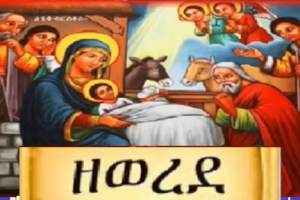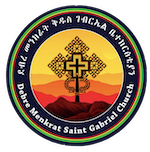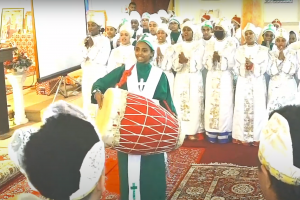Fourth week after Easter (በ4ተኛ እሑድ) መዝሙር ተንሥአ ወእንስእ ኲሎ ሙታነ።
- Posted by Editorial Team
- Categories Saint Gabriel Posts, Sebeka Gubae, SenbetTB
- Date May 18, 2020
Student Membership Required
You must be a Student member to access this content.
Already a member? Log in here
You may also like

First Week of Great Lent Zewerede
April 1, 2023
“ትውልድ ሁሉ ብፅዕት ይሉኛል” (ሉቃ.፩፥፵፰)
May 9, 2020
Student Membership Required
You must be a Student member to access this content.
Already a member? Log in here

